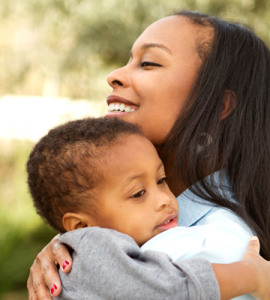>> I only just recently stumbled upon the phrase,“reproductive justice.” And by recently, I mean in the past year. I’ve identified with being “pro-choice” almost all my life and I’ve believed that access to safe and legal abortion and birth control should be easy for all women. But I’ve always felt that there was more to it.
I only just recently stumbled upon the phrase,“reproductive justice.” And by recently, I mean in the past year. I’ve identified with being “pro-choice” almost all my life and I’ve believed that access to safe and legal abortion and birth control should be easy for all women. But I’ve always felt that there was more to it.
Reproductive justice, a >>term coined by black women activists in 1994, is more comprehensive than pro-choice, and it’s a term that speaks to my sense that something is missing from the choice conversation. While the pro-choice movement focuses on access to birth control and abortion, it relies on the notion that women have a choice to have children or not. Reproductive justice asks the question: what if women, for many reasons, don’t have a choice?
What if a woman wants to get birth control, but has no medical centers close by to give her a prescription?
What if she can’t get birth control because she’s one of the approximately 400,000 North Carolinians in >>the Medicaid gap for health care coverage?
What if she lives in an area of the state where there is no comprehensive sex education and she’s been taught that abstinence is the only way to prevent pregnancy?
The good news is that a coalition of national black women reproductive justice organizations has adopted a >>national black women’s reproductive justice agenda. The agenda comes at a essential moment, with reproductive and health access rights being slashed across the country. In the past three years the North Carolina General Assembly has tried to cut funding from Planned Parenthood, passed a bill that makes a women seeking an abortion wait 24 hours, and championed the infamous >>Motorcycle Vagina Bill that closed the doors on many abortion providers in our state.
The women hurt most by these pieces of legislation are North Carolina’s neediest: they are low-income, living in rural areas, and black women. And these are not policies that black women support.
The coalition conducted a >>study of more than 1,000 black women, and they overwhelmingly supported safe and legal abortion, access to birth control, and comprehensive sex education. Even across varying degrees of religiosity, black women believe that access to reproductive rights are common sense. The women surveyed believe that instead of making abortion illegal, the focus must be on preventing pregnancies. I agree this makes the most sense because without unwanted pregnancies, abortion providers would do far less business.
The idea of reproductive justice, looking beyond the simple choice of having or not having a child, will naturally bring more people to the conversation. I’m religious, and when I was growing up I didn’t find many spaces to talk about these health issues, unless it was done very privately with my friends or family. Abortion is a touchy subject, and even those of us who are religious and identify as “pro-choice” have varying opinions about it.
I’m happy that these conversations are continuing to happen on the national stage. Black women — all of us — need the space to talk about our reproductive rights and how it affects our lives, families, and communities. And I believe the idea of reproductive justice brings us one step closer to the common ground we need to support every woman in making the best and healthiest choices she can.
Excellent commentary! In terms of reproductive justice and equity, please add breastfeeding into your thoughts on this issue. Women of color suffer similar difficulties in getting breastfeeding support: availability, accessibility, cost, institutionalized prejudice, etc.
We have a discussion each year on breastfeeding and feminism: http://breastfeedingandfeminism.org/.
Women everywhere would benefit from hearing more voices of women of color on these issues of vital importance to all!
Human sexuality is not well addressed by our institutions.
Marketing sex, preaching abstinence, and limiting reproductive choice leaves us all holding the bag, with poor or marginalized women and their children suffering the most. The term “women of childbearing potential” fails to account for children or adolescents of childbearing potential.
Progress toward a humane and practical approach to sexuality in the developed world is just barely ahead of the third world. Misogyny embedded in society goes unnoticed by many of us with choice, opportunity and rational contemporaries. Thanks for drawing notice and looking for systemic solutions.